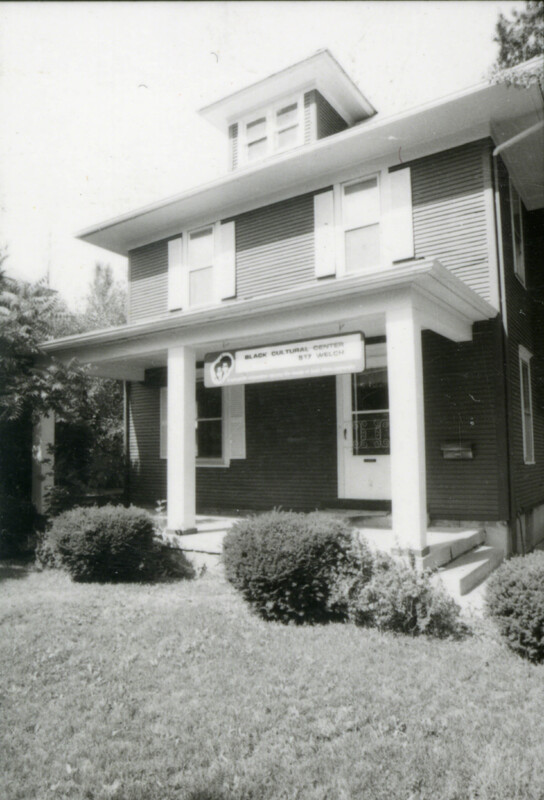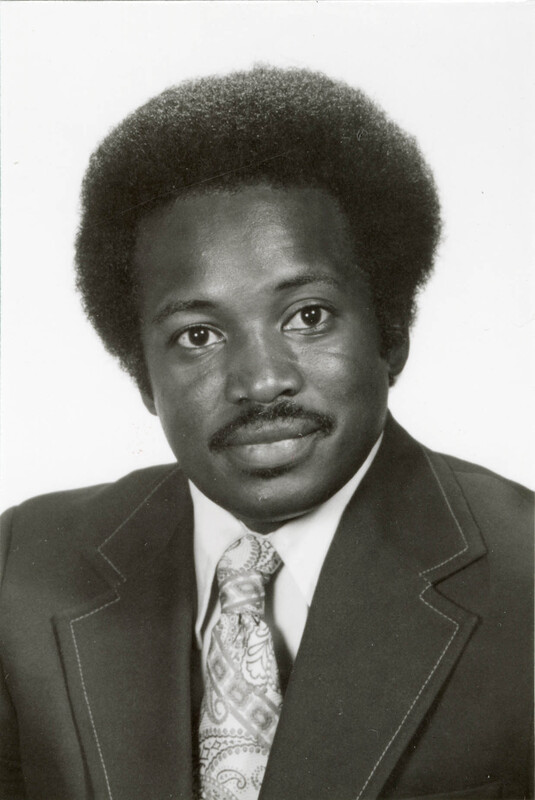Background
This exhibition was created to recognize the 2020 50th Anniversary of the George A. Jackson Black Cultural Center.
Establishing the Black Cultural Center
A student protest, following the murder of Martin Luther King, Jr., was the impetus that established what is now the George A. Jackson Black Cultural Center (BCC) at Iowa State University. On April 4, 1968, Black students gathered to form the “Afro-American Students of Iowa State.” Two days later, on the evening of April 6, approximately 50 demonstrators from this group gathered at the Memorial Union and toasted to “Black unity on campus,” then tossed away their cups, overturned the tables and chairs and left. Within weeks of this action, the students had laid out their purpose in a constitution and formed the Black Student Organization (BSO). The BSO became the leading voice on campus over the next several years in a push for equitable treatment of Black students, the hiring of Black faculty and staff, the creation of an African Studies program, the promotion of cultural awareness on campus, the establishment of a center where Black students could share life experiences, and providing support in a predominantly white institute.
Struggle for funding and recognition
The Center faced a struggle for funding and recognition from the start. ISU President W. Robert Parks stated that the university couldn't provide money for the funding of the organization or purchasing of property to house the Center. He did urge student, faculty, staff, alumni, and the general public to help raise funds. Throughout the 1969-70 school year support continued to grow on campus in support of a Cultural Center, with the Government of the Student Body passing a resolution in support, and ongoing fundraising efforts. By late 1969, $30,000 was raised through private donations as well as funding from the GSB and Veishea Committee, and a house at 517 Welch Avenue was purchased to be the home of the Black Cultural Center. The BCC was dedicated on September 27, 1970.
The BCC operated as a stand-alone, private nonprofit with no official ties to Iowa State University until 1997, but often worked with the BSO to sponsor programming such as Black Cultural Week/Month events, Martin Luther King, Jr. Day events, along with other programs throughout the school year highlighting Black and African culture. Since its inception, the Center had difficulty with funding, having relied on donations from students, faculty, staff, alumni and the community to keep its doors open. By 1995, the facility needed $25,000 in repairs, and an agreement was reached between ISU and the BCC. The University would formally recognize the BCC as an organization affiliated with the University, programming would be designed to support both, and the ISU Foundation would assist in fundraising efforts.
Honoring Dr. George A. Jackson
On May 20, 2017, the Black Cultural Center was named in honor of Dr. George A. Jackson. Dr. Jackson served ISU for 31 years. From his arrival in 1978, Jackson served in a number of positions: the first director of the newly named Office of Minority Student Affairs, Associate Dean of the Graduate College, Director of the BCC, and Special Assistant to the Provost. Throughout his time at ISU, Dr. Jackson championed the recruitment of underrepresented students and faculty, and initiated a number of academic and social programs to support underrepresented student life.


